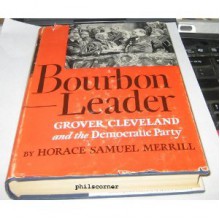Grover Cleveland was an obscure Buffalo, New York lawyer. He had served a term as District Attorney, had been displeased by the corruption in local government, and had returned happily to his small practice, untouched by political ambition. Then, in 1882, he found himself elected to the Mayor's...
show more
Grover Cleveland was an obscure Buffalo, New York lawyer. He had served a term as District Attorney, had been displeased by the corruption in local government, and had returned happily to his small practice, untouched by political ambition. Then, in 1882, he found himself elected to the Mayor's house in Buffalo -- 1883 to the Governor's Mansion in Albany -- 1884 to the White House in Washington.
The Democratic party was, as Oscar Handlin says, "excluded from power by the collapse of its organization after 1860, by the effects of Reconstruction, and by the persistent stigma of disloyalty. . . By the very fact that it was always in opposition, it drew to it men of every sort with grievances against the dominant Republican party. The aggrieved groups were themselves disparate; they could join in opposition, but it was not clear they had enough to unite in a positive program should they regain control of the government."
A people weary of radical Republicans, and disgusted with Tammany Democrats, voted for a man who opposed both, who was unquestionably honest, who had a refreshingly blunt manner of expressing his opinions. In defiance of Tammany Hall (which should have been a political disaster but proved to be just the opposite), Cleveland and his backers, led by Tilden and Manning, captured the public fancy, and an unknown became President of the United States.
"The people demand reform in the administration of the government and the application of business principles to public affairs," said Cleveland, and with these convictions he faced such important issues as Civil Service Reform, the repeal of the Silver Purchase Act, the tariff problem, and the Interstate Commerce Act.
Although history was eventually to prove the Bourbon theories inadequate to the needs of a growing industrial nation, Bourbon conservatism nevertheless set in motion important currents in American politics, the effect of which can still be felt today.
show less

